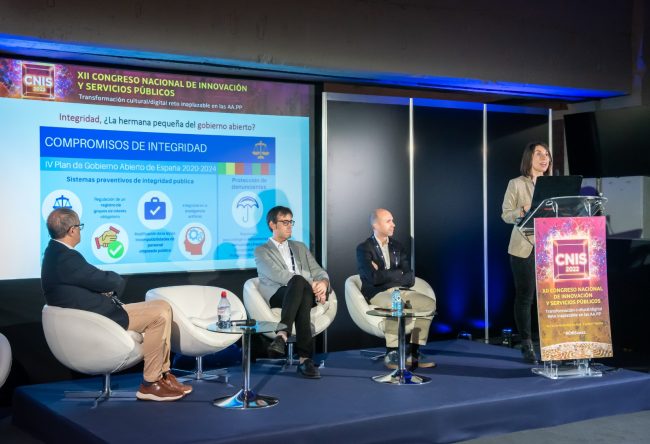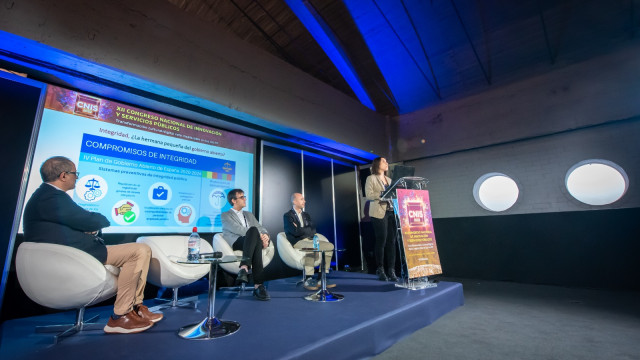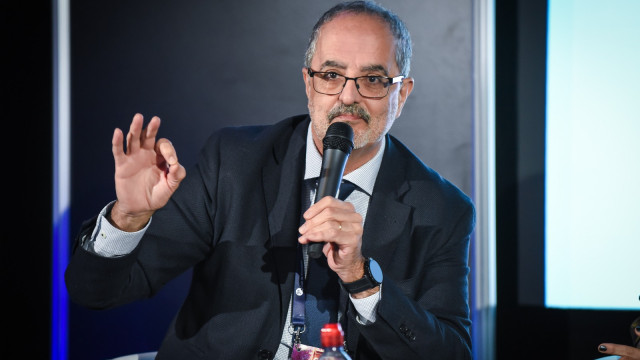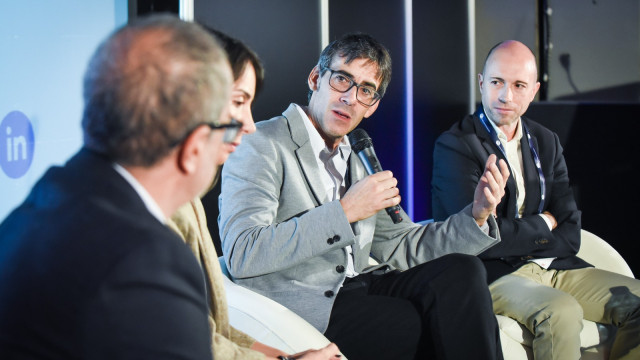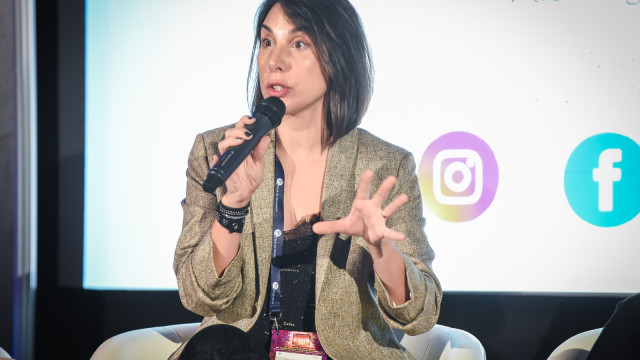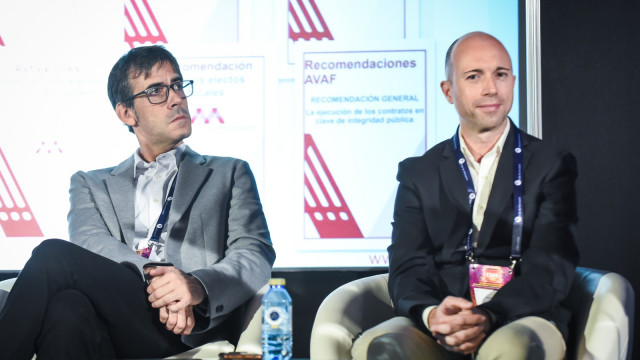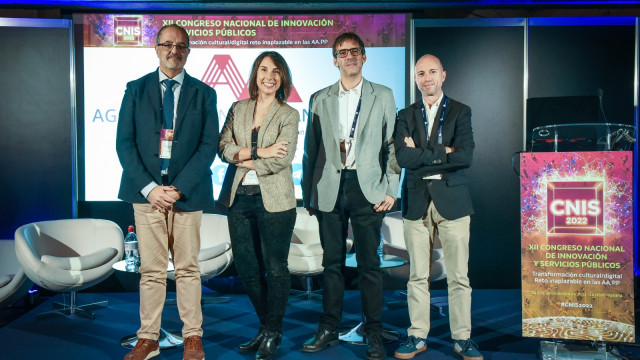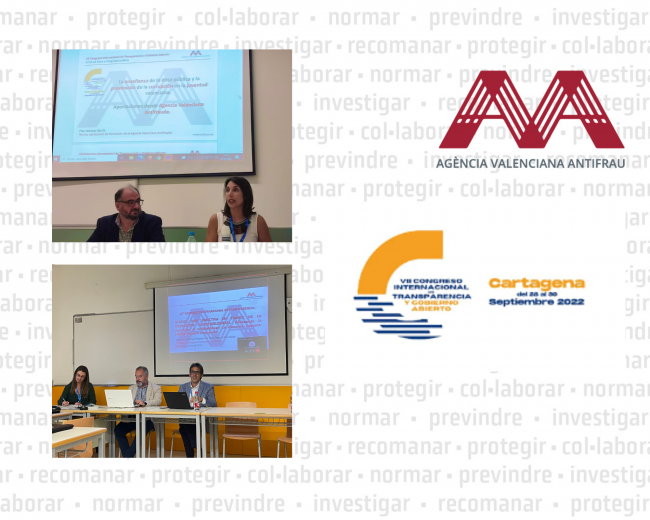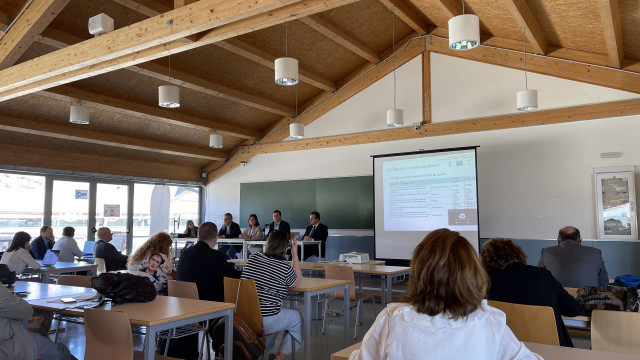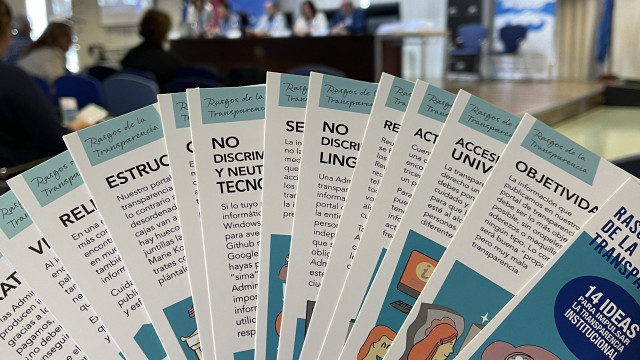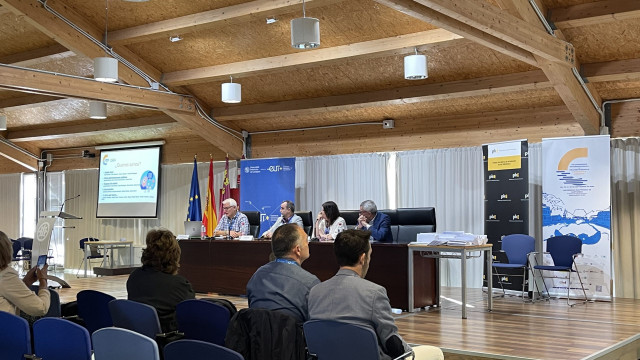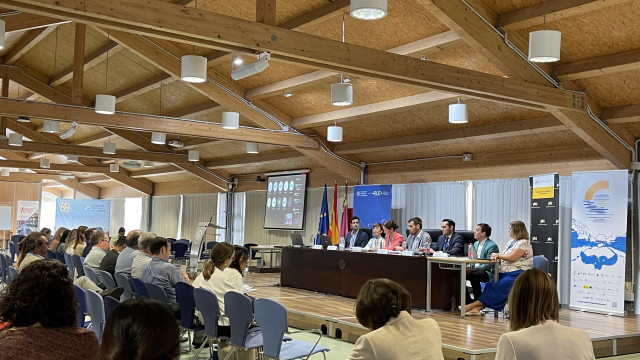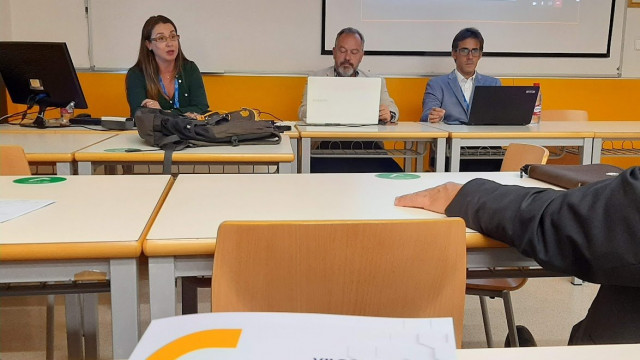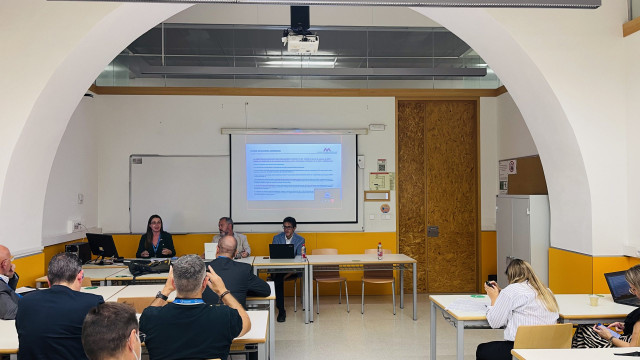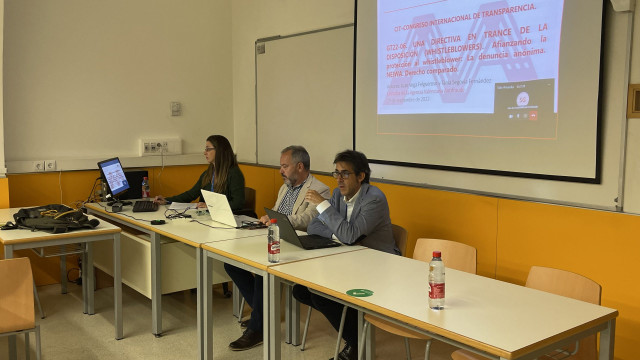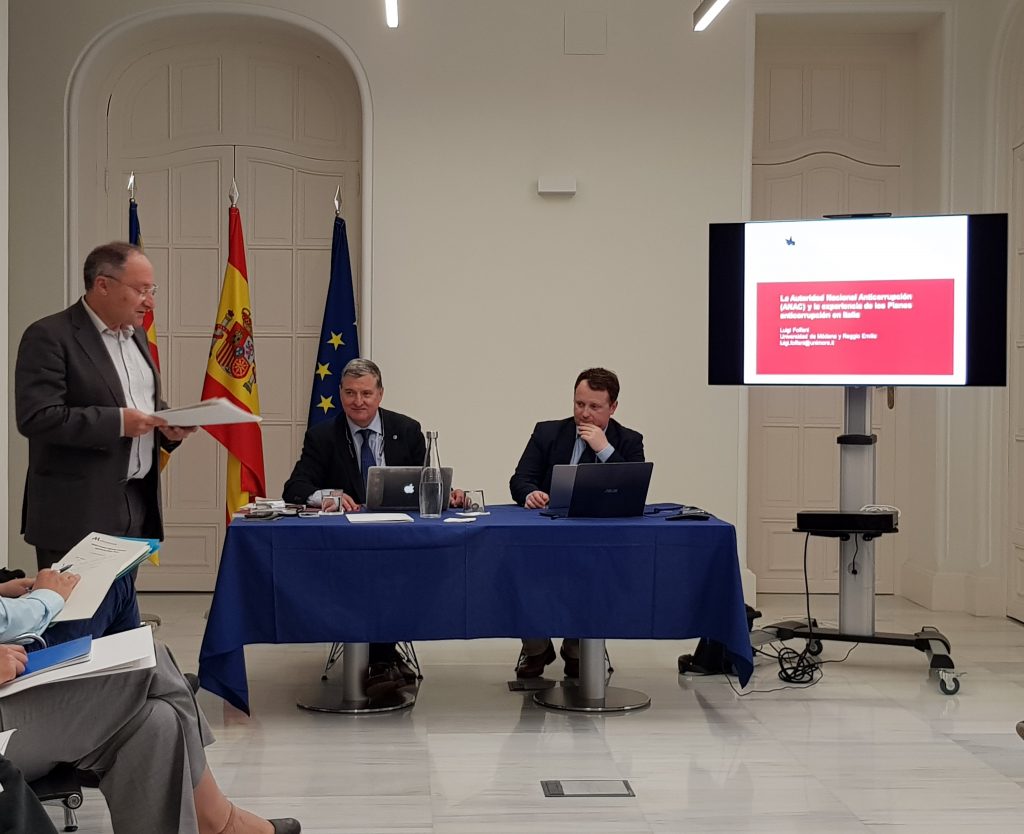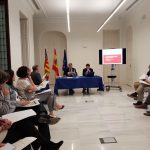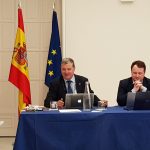The AVAF, a consolidated strategy of public integrity in the National Congress of Innovation and Public Services 2022
#TrainingAVAF
Madrid, December 13, 2022
The Valencian Anti-Fraud Agency has participated in the CNIS 2022 that took place in La Nave (Madrid) on December 13 and 14, 2022.
The AVAF was present on the first day of the congress with the discussion table “Valencian Antifraud Agency, a consolidated strategy of public integrity”, where the three organizational directions of the Agency were represented.
Anselm Bodoque Arribas, head of the Training Service, was the moderator of a table in which around 60 people shared with the public, the work carried out by the departments of Analysis and Investigation, Legal Affairs and Prevention, Training and Documentation of the Agency to consolidate integrity in public administration.
Internal complaint channels, the AVAF complaint mailbox and its importance were the focus of the intervention of Miguel Furió Ferri, head of the Analysis and Investigation service, of the Directorate of the same name. During the round table, the need to define the interrelation mechanisms between the complainants and the Agency was stressed, as well as the characteristics of the complaint channels and complaint management procedures.
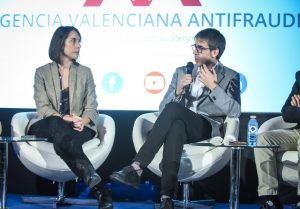 The Directorate of Legal Affairs, led by Juan Vega Felgueroso, a lawyer for the Agency, explained the work in terms of protection of corruption whistleblowers and legal advice carried out by the AVAF. The Agency’s lawyer highlighted the paradigm shift brought about by Directive (EU) 2019/1937 on the protection of persons who report violations of Union Law and the bill that will transpose said directive. And in the debate, the emphasis was placed on the fact that all public administrations should soon have internal and external alert channels.
The Directorate of Legal Affairs, led by Juan Vega Felgueroso, a lawyer for the Agency, explained the work in terms of protection of corruption whistleblowers and legal advice carried out by the AVAF. The Agency’s lawyer highlighted the paradigm shift brought about by Directive (EU) 2019/1937 on the protection of persons who report violations of Union Law and the bill that will transpose said directive. And in the debate, the emphasis was placed on the fact that all public administrations should soon have internal and external alert channels.
Integrity -as the driving force behind the transformation of public administration- marked the presentation by Pilar Moreno García, a training technician from the AVAF Prevention, Training and Documentation Department. Through the catalog of AVAF publications, guides and recommendations , public employees and citizens in general can access documents to promote this organizational change.
The training actions developed by the Training Service aimed at personnel at the service of public administrations, university students, children and adolescents and organized civil society is the second key to advancing in public integrity.
During the debate, the need for effective communication on the prevention of corruption was also stressed to publicize the multiple resources available to the Valencian Anti-Fraud Agency at www.antifraucv.es
From here we want to thank all those attending the discussion table of the Valencian Anti-Fraud Agency at the CNIS 2022 for their presence, as well as the organization of the congress for their interest in allowing the AVAF to share their experience in matters of public integrity.


